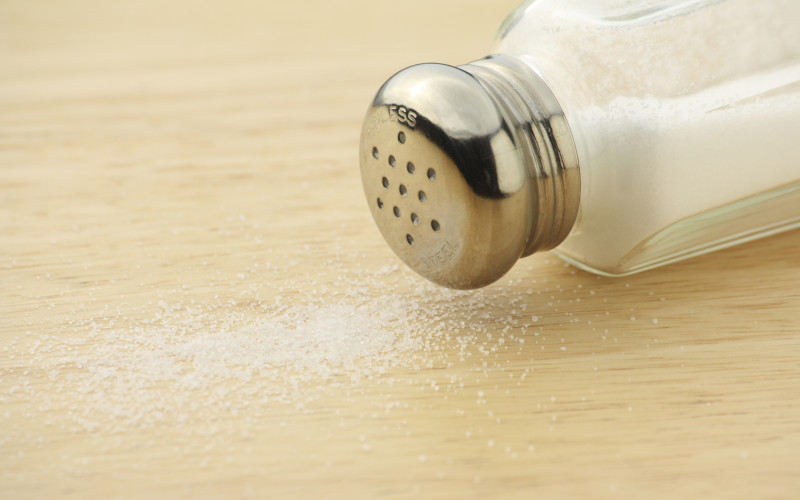Study shows excess salt intake harms more than just blood pressure

Although it is widely known that excess salt can cause unhealthy blood pressure levels, researchers from Christiana Care Health System and the University of Delaware concluded that excess salt intake also wreaks havoc on many other organs.
Consuming too much salt can adversely impact the heart, kidneys, blood vessels and brain, according to research review published in the current issue of the Journal of the American College of Cardiology by William Weintraub, M.D., MACC, FAHA, FESC, John H. Ammon Chair of Cardiology at Christiana Care and founding director of Christiana Care’s Center for Outcomes Research, and William Farquhar, Ph.D., chair and professor of the Cardiovascular Research Laboratory at the University of Delaware.

“Our goal is to arm patients and their families with the information they need to make healthy decisions about their diets so they can live healthy lives,” Dr. Weintraub said. “Other research has established the unhealthy impact of increased salt intake on blood pressure, but this review goes beyond those findings to shine a light on the unhealthy impact excess salt intake causes on several other organs.”
Specifically, the review of more than 100 studies by Weintraub and Farquhar found that excess salt intake can cause serious health problems, even in the absence of blood-pressure complications.
In the heart, increased salt intake can cause an enlargement of the walls of the main pumping chamber, forcing the chamber to work harder, and thereby increasing the risk for cardiovascular problems.
In the kidney, increased salt intake can cause an increase in protein excretion, as well as a hindrance of the rate of waste filtration from the blood.
In the blood vessels, increased salt intake can cause a disruption of the ability of their inner lining to function properly.
In the brain, increased salt intake can cause the unnecessary activation of the fight-or-flight response, which can result in cascade of health problems.
According to a 2012 National Health and Nutrition Examination Survey, 97 percent of U.S. adults consumed more sodium than recommended by the federal government’s Dietary Guidelines for Americans.
Weintraub and Farquhar conclude that a coordinated, population-wide effort should be launched to reduce the intake of sodium that is inclusive of health advocacy groups, food processers, restaurants and public policy makers.
Christiana Care’s Center for Outcomes Research features researchers with established expertise in clinical, population health and cost-effectiveness research. The center focuses on the impact of alternative approaches to prevention, diagnosis and treatment of disease.
The Center for Outcomes Research is one of four centers within Christiana Care’s Value Institute, whose goal is to develop, deliver and evaluate innovative practice and policy solutions that improve the experience, efficiency and effectiveness of health care for patients and providers alike.
The study was supported through the Delaware Clinical and Translational Research Program, also known as CTR-ACCEL, which is a five-year, $20 million grant from the National Institutes of Health to support clinical and translational research given to the University of Delaware, Christiana Care, Nemours and Medical University of South Carolina. Weintraub is the leading investigator for CTR-ACCEL at Christiana Care.
Other authors in the review include Claudine Jurkovitz, M.D., MPH, senior physician scientist with Christiana Care’s Value Institute, whose mission is to develop, deliver and evaluate innovative health care solutions that meet the Triple Aim of improving patient experience and population health while reducing health care costs. David G. Edwards, Ph.D., associate professor of the Vascular Physiology Laboratory at the University of Delaware, also is an author in the review.